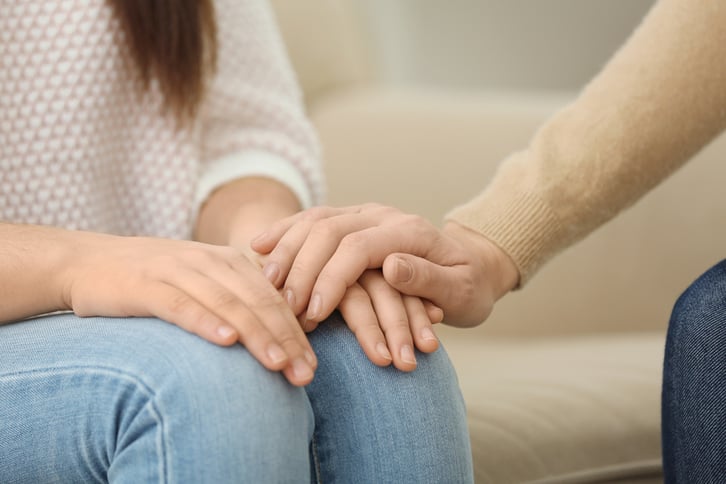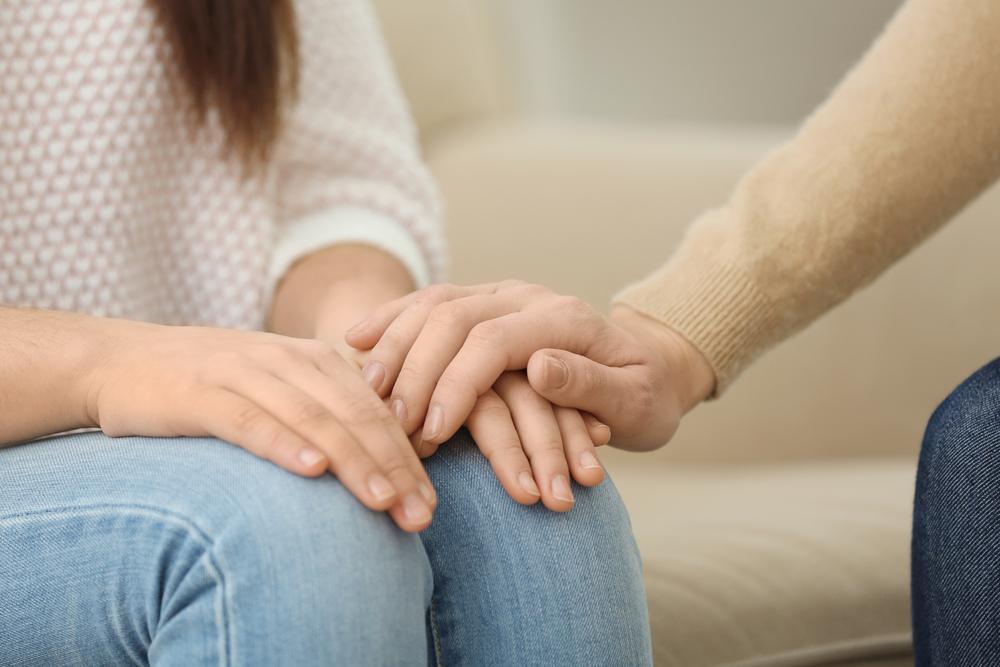Health Tip: Post-Pandemic Emotional Health

Throughout this past year, virtually every aspect of life has been altered in some form due to COVID-19. While the medical ramifications of the virus are well known, mental health ramifications are now understood to be widespread. There are many ways that the changes brought about by the pandemic can lead to mental health problems. The following are just a few:
- Stress: The unrelenting fear of catching the virus, or giving it to a vulnerable family member has caused excessive stress, which can lead to anxiety and depression.
- Changes in Routines: We are all creatures of habit, so having our day-to-day lives thrown out of whack for an extended period of time can lead to stress and anxiety.
- Isolation: Even for those who are not social butterflies, we all need social interaction for healthy mental stability - especially face to face social interaction. Isolation is damaging in many ways from simply causing loneliness to anxiety and depression. Isolation in general is one thing, but isolation from beloved family members is another. Not being able to hug or touch a family member is very isolating.
- Lack of Physical Activity: Another way that the pandemic can negatively impact mental health is a lack of physical activity. Working out releases endorphins, which in turn improves mood and overall well-being, and reduces anxiety and depression.
Health Tips for Post-Pandemic Emotional Health
Now that we have a vaccine and the world is slowly opening up once again, it’s time to get your mental health back to normal. The following are some tips to do just that, to regain optimal emotional health post-pandemic. These are applicable even if you are maintaining your COVID routine and staying socially distanced:
- Get Physical: Begin establishing a new activity or exercise routine. It can be as small as a walk in your own neighborhood or as daring as trying to learn a new activity like hiking or rock climbing. Being physically active is a vital aspect of mental health, so it’s important to once again make this a priority in your life.
- Schedule a Time For Anxiety: It might sound a bit odd, but it does help to actually put some time on your schedule for worrying. https://www.verywellmind.com/how-can-i-stop-worrying-so-much-2583982 This can be an effective way to manage your stress about the virus, your job or other factors. Instead of being anxious all day, you can allocate a short amount of time to be anxious and then force yourself to stop once this time has passed.
- Maintain Your Social Connections: Even if you are keeping your distance socially, it’s important to maintain social connections with those you care about. To do this you can use social media or video chats, etc. Find a group that is positive, upbeat and sees humor in the whole situation. Laughter and humor are very important. Attend an online church service or join a forum, just reach out to those around you. Don’t allow yourself to be isolated even if you are physically.
- Control/Limit Your Exposure to News: Choose how often you are going to watch the news. Once a week or once a month...or even not at all...is a discipline that can save your life. You can get updates from friends or family members as needed, but choosing not to stay immersed in negative news is vital to your emotional and mental well-being.
- Get Out into Nature: Spending time outdoors enjoying nature is a great way to redirect your thinking and focus on what's beautiful in the world around you. If you are unable to get out, watch nature videos. It's been shown to have a very calming effect and will help with anxiety.
- Sun Exposure: At least 30-minutes when possible of direct sunlight on your face and skin will help your emotional state and vitamin D levels - which also helps fight the coronavirus.
- Get Adequate Sleep: It's important for your body and mind to have sufficient time to rest and rejuvenate. 7-8 hours a night is recommended. Follow an evening routine that tells your body it's time to calm and prepare for sleep. Go to bed at the same time, avoid eating after a certain time and stay away from caffeine after lunch. It may help to listen to calming music. Make sure your room is darkened and cool.
- See a Counselor or Your Provider: For some, there can be a stigma about meeting with a counselor or talking with a professional. Most of us do at times benefit greatly from help and guidance from someone who can coach us through a difficult period. There's no shame in doing what you need to help yourself, and a conversation with a counselor or provider may be just what you need.
Warning Signs of Mental Health Issues
Look for these warning signs that your mental health needs attention. If you notice any of the following symptoms, then know you need to implement the aforementioned post-pandemic tips to improve your mental condition:
- Changes in Mood: One sign of poor mental health is feeling as if you are on a bit of an emotional rollercoaster. You can be sad, mad, irritable, anxious, all in the same day within the same few hours.
- Changes in Sleep Habits: Stress, anxiety and depression can negatively impact sleep. This can include sleeping too much or not enough or having difficulty falling or staying asleep.
- Changes in Weight or Appetite: Anxiety and depression can change the way you eat, either making you want to eat more or less than normal. This can then lead to either weight loss or gain depending on how anxiety affects you personally.
- Changes in Concentration: The last symptom of an emotional disorder or mental unrest is having difficulty concentrating or staying on task. It can be a sign of stress, anxiety or depression.
Dealing with mental health issues or anxiety during the pandemic or post-pandemic is completely normal. There is no reason to feel any shame. Thankfully, by putting the tips outlined above into action, you can improve your mental health and get back to wellness.


